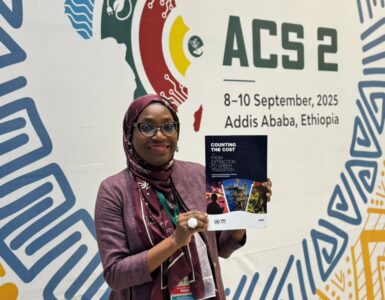The initiative seeks to improve outreach and stakeholder inclusion in the rollout of the Ghana Climate Atlas, a vital tool for understanding climate variability and change across the country
The Ghana Meteorological Agency (GMet), in partnership with the Danish Meteorological Institute (DMI) and the UK Centre for Ecology and Hydrology (UKCEH), is stepping up efforts to improve national preparedness and climate resilience through two parallel initiatives.
A delegation from the Danish Meteorological Institute is currently in Ghana to advance the Strategic Sector Cooperation (SSC) project, with a focus on developing a robust communication and stakeholder engagement plan for the Ghana Climate Atlas.
The three-day working session, which began on Monday 16 June and ends Wednesday 18 June 2025, brings together GMet, DMI, and the Danish Embassy in Ghana.
The initiative seeks to improve outreach and stakeholder inclusion in the rollout of the Ghana Climate Atlas, a tool designed to enhance understanding of climate variability and change across the country.
The atlas provides user-friendly, data-driven insights into Ghana’s changing climate. With a new communication strategy in development, the aim is to improve access and usability across key sectors such as agriculture, urban planning, disaster risk reduction, and academia.
Speaking during the session, the Director-General of GMet, Dr Eric Asuman, acknowledged the importance of sustained international partnerships in building local expertise.
“I want to express our appreciation to the Danish Meteorological Institute and the Danish Embassy for their continued support in building the capacity of GMet staff and developing in-house climate expertise,” Dr Asuman said.
In a related development, GMet, in collaboration with UKCEH, has commenced a two-day workshop under the ongoing Lightning Project.
The training, which also began on Monday 16 June, focuses on improving understanding and preparedness for storms and heatwaves in Ghana—both of which are becoming more frequent and intense due to climate change.
Facilitated by a team from UKCEH, the workshop explores Ghana’s current knowledge of heatwaves, future climate projections, and the operational needs of GMet in responding to extreme weather events.
Dr Asuman urged participants to take the training seriously, noting its relevance to national development.
“These engagements are essential for building capacity to support the country’s socioeconomic development,” he said. “They provide practical tools and knowledge to help strengthen our preparedness and improve climate services delivery.”
The Strategic Sector Cooperation project and the Lightning Project are part of broader efforts to bolster Ghana’s climate resilience through international collaboration, knowledge exchange, and capacity building.
Source: Asaase Raadio.


























